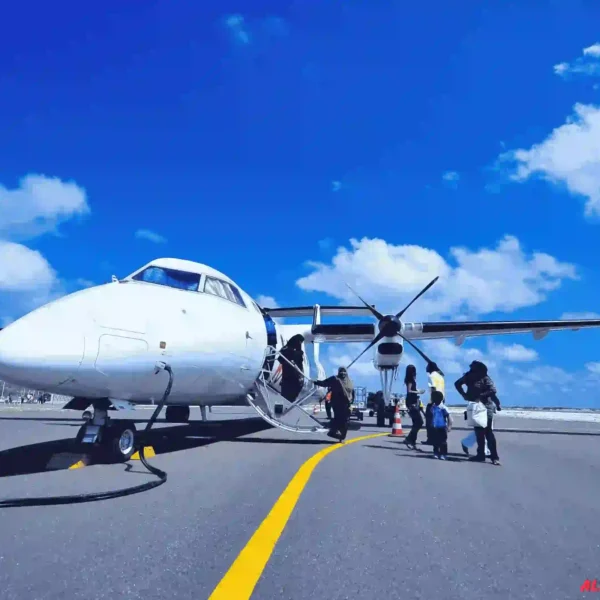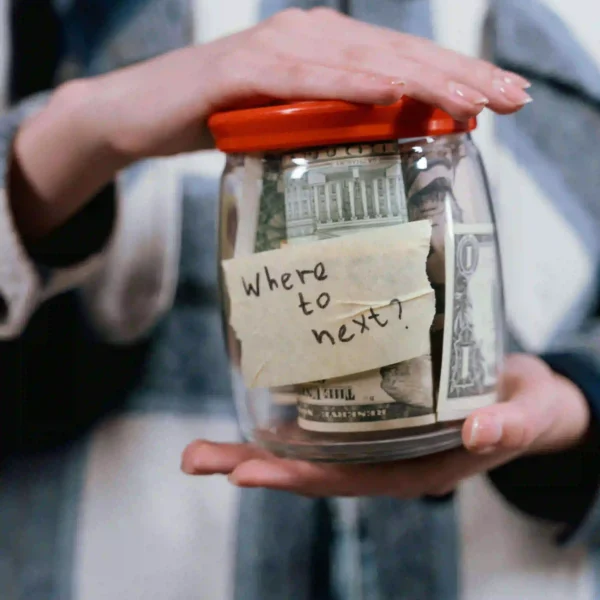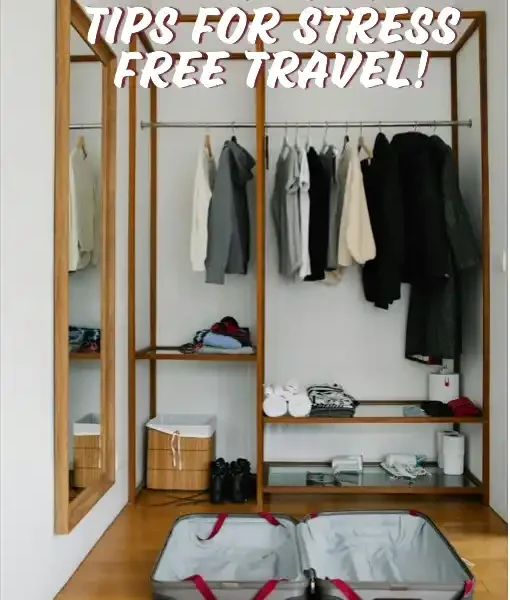Planning your first trip? Exciting, right? Traveling opens up a world of new experiences, but safety should always come first. Whether you’re exploring a new city, hopping on a plane, or backpacking across countries, knowing how to stay safe while traveling for the first time is crucial.
From avoiding travel scams to protecting your money and documents, a little preparation goes a long way. This guide will walk you through the best travel safety tips for first-time travelers, so you can explore the world confidently without worry.
Ready to travel smart? Let’s dive in!
Pre-Trip Safety Planning
A well-prepared traveler is a safe traveler. Start by researching your destination, securing the right travel insurance, and packing smartly to ensure a smooth and secure journey. These best travel safety tips for first-time travelers will help you stay organized, protected, and ready for your adventure.
Researching Your Destination
Before you pack your bags, take some time to research your destination. Every place has its own safety concerns, cultural norms, and local laws. A little research can help you avoid risky areas and ensure a smooth trip.
🔹 Check Travel Advisories – Visit official government websites like the U.S. Department of State’s Travel Advisory or the UK Foreign Travel Advice to see if your destination has any safety warnings.
🔹 Know the Local Laws & Customs – Some things that are normal in your country might be illegal or offensive elsewhere. For example, chewing gum is banned in Singapore, and certain hand gestures are considered rude in some countries.
🔹 Save Emergency Contacts – Keep a list of important contacts, including the local police, your country’s embassy, and emergency medical services.
🔹 Join Travel Forums – Websites like Reddit and travel groups on Facebook can give you real-time safety updates from travelers who have recently been there.
Getting the Right Travel Insurance
Many first-time travelers overlook this, but travel insurance is a must! Accidents, lost luggage, or sudden cancellations can ruin a trip. A good policy covers:
✅ Medical emergencies – Hospital bills can be expensive abroad.
✅ Trip cancellations – Get refunds if your trip gets canceled due to an emergency.
✅ Lost or stolen belongings – Protect your passport, luggage, and valuables.
💡 Pro Tip: Compare travel insurance plans on sites like World Nomads or SafetyWing to find the best coverage for your budget.
Packing Smart & Securely
What you pack (and how you pack) can make a huge difference in your safety.
🔹 Use Anti-Theft Bags – Invest in an RFID-blocking wallet and a crossbody anti-theft bag to protect your valuables from pickpockets.
🔹 Keep a Digital Backup of Important Documents – Scan your passport, visa, travel insurance, and hotel bookings and email them to yourself.
🔹 Pack Light & Avoid Flashy Jewelry – Looking like a tourist with expensive accessories can make you an easy target for scams.
🔹 Carry a Dummy Wallet – Keep a small amount of cash in an old wallet. If someone tries to rob you, hand over the dummy wallet instead of your real one.
Staying Safe During Travel
Follow these best travel safety tips for first-time travelers to stay secure and confident on the road. From avoiding scams to keeping your belongings safe, these practical steps will help you navigate your journey with ease and peace of mind.
Avoiding Common Travel Scams
Scammers love targeting first-time travelers. Being aware of the most common travel scams can help you avoid them.
🚨 Watch out for these tricks:
🔹 The Taxi Overcharge – Some drivers refuse to use the meter or take a longer route. Always agree on a fare beforehand or use rideshare apps like Uber or Bolt.
🔹 The Fake Police Officer – Someone in a fake uniform asks to check your passport or wallet, then steals your cash. Always ask for proper identification before handing over anything.
🔹 The “Helpful” Stranger – Someone offers to “help” with your bags, ATM transactions, or directions, only to demand a tip or steal your belongings. Be cautious of overly friendly strangers.
🔹 The Closed Attraction Scam – A local tells you a famous attraction is “closed” and offers to take you somewhere else (usually an expensive or unsafe place). Always check official websites.
💡 Pro Tip: If something feels off, trust your instincts and walk away. A firm “No, thank you” works wonders!
Personal Safety & Awareness
You don’t need to be paranoid, but staying alert can keep you safe in unfamiliar places.
✅ Stay in well-lit, busy areas – Avoid deserted streets, especially at night.
✅ Walk with confidence – Looking lost can make you an easy target. If you need to check your map, step into a café or shop.
✅ Keep valuables close – Use a crossbody bag and never keep your phone or wallet in your back pocket.
✅ Be careful when using ATMs – Use machines inside banks rather than on the street. Cover the keypad while entering your PIN.
Staying Safe with Transportation
Not all transport options are safe, so choose wisely!
🚕 Taxis & Rideshares
🔹 Use official taxis or rideshare apps to avoid overcharging and scams.
🔹 Always check the driver’s details before getting in.
🔹 If taking a taxi, ask hotel staff or locals about the official taxi color in that city.
🚇 Public Transportation
🔹 Avoid rush-hour crowds to reduce the risk of pickpocketing.
🔹 Keep an eye on your bags at all times.
🔹 If you feel unsafe, move to another seat or exit at the next stop.
Accommodation Safety Tips
Your hotel or hostel should feel like a safe space. Here’s how to keep it that way:
🔹 Check Reviews Before Booking – Sites like Booking.com and Airbnb reviews will tell you if a place has safety issues.
🔹 Use the Hotel Safe – Store passports, cash, and other valuables in the room safe or wear a money belt.
🔹 Lock Your Door – Use a portable door lock or wedge a rubber doorstop under the door for extra security.
🔹 Don’t Share Your Room Number – If the hotel staff announces it out loud, ask for a different room.
Food & Health Precautions
Nobody wants to get sick while traveling! Stay healthy with these food safety tips:
✅ Drink bottled or filtered water – In many countries, tap water isn’t safe.
✅ Avoid ice cubes in drinks – They may be made from contaminated water.
✅ Be cautious with street food – Eat where locals eat and look for stalls with long lines (a sign the food is fresh).
✅ Wash your hands often – Or use hand sanitizer before eating.
💡 Pro Tip: Check travel health recommendations for vaccinations and carry basic medications (painkillers, diarrhea relief, allergy meds).
Digital Security While Traveling
Your personal information is just as important as your physical safety!
🔹 Use a VPN – Public WiFi can be hacked. A VPN (Virtual Private Network) protects your data.
🔹 Avoid logging into sensitive accounts – Don’t access banking apps on public networks.
🔹 Enable Two-Factor Authentication (2FA) – Extra security for your emails and social media.
🔹 Keep a Backup Phone – If your primary phone gets lost or stolen, having a cheap backup phone helps.
Money Safety & Avoiding Theft
🔹 Carry small amounts of cash – Only take what you need for the day.
🔹 Use a hidden money belt – Keep extra cash and a backup card tucked away.
🔹 Split your money – Don’t keep all your cash and cards in one place.
🔹 Be cautious at ATMs – Choose indoor ATMs, and avoid using them at night.
Emergency Preparedness While Traveling
Even with the best planning, emergencies can happen. Being prepared can help you stay calm and act fast in difficult situations. Follow these best travel safety tips for first-time travelers to handle emergencies effectively, from knowing local emergency contacts to keeping important documents secure. Stay ready, stay safe.
What to Do If You Lose Your Passport
Losing your passport abroad can be stressful, but here’s how to handle it:
🔹 Stay Calm & Check Your Belongings – Sometimes, it’s just misplaced. Double-check your bags, hotel room, and recent locations.
🔹 Report the Loss – Visit the nearest police station to file a report. Some embassies require a police report before issuing a replacement.
🔹 Visit Your Embassy or Consulate – Bring a copy of your passport, visa, and ID. If you don’t have copies, provide other proof of identity.
🔹 Get a Temporary Travel Document – The embassy will issue a temporary passport so you can continue your trip or return home.
💡 Pro Tip: Keep a digital copy of your passport stored in your email or cloud storage.
Dealing with Theft or Pickpocketing
If your wallet, phone, or valuables get stolen:
✅ Find a Safe Place – Move away from crowds and assess the situation.
✅ Report It Immediately – Contact the local police and file a report.
✅ Call Your Bank & Block Your Cards – Use banking apps or call your bank to freeze stolen credit/debit cards.
✅ Use Emergency Cash – If you followed the money-safety tips (keeping cash in different places), you should have backup funds.
💡 Pro Tip: Use apps like Find My iPhone or Google’s Find My Device to locate or erase your lost phone remotely.
Handling Medical Emergencies
If you get sick or injured while traveling:
🔹 Know the Emergency Number – Not all countries use 911. Look up the emergency number for ambulance services in your destination before traveling.
🔹 Visit a Hospital or Clinic – Your travel insurance should cover medical emergencies. Keep a digital copy of your policy and claim process.
🔹 Carry a Basic First Aid Kit – Include pain relievers, band-aids, antiseptic wipes, and any prescription medications.
💡 Pro Tip: Learn basic phrases in the local language like “I need a doctor” or “Where is the nearest hospital?”
Getting Help from Your Embassy
Embassies and consulates help travelers in trouble. They can assist with:
✅ Lost or stolen passports
✅ Legal issues or arrests
✅ Medical emergencies
✅ Evacuations during political unrest or natural disasters
📍 Find Your Nearest Embassy: Visit your government’s website to locate your country’s embassy in your travel destination.
Staying Connected & Asking for Help
🔹 Save Local Emergency Numbers – Keep numbers for police, ambulance, and fire departments in your phone.
🔹 Use Safety Apps – Apps like bSafe, TripWhistle, or Noonlight can share your location with trusted contacts in case of danger.
🔹 Keep a Portable Charger – A dead phone in an emergency is the last thing you need! Carry a power bank to keep your phone charged.
Final Safety Tips for First-Time Travelers
Traveling for the first time is exciting, but safety should always come first. By staying alert and preparing for potential risks, you can enjoy a smooth and stress-free trip. Keep these best travel safety tips for first-time travelers in mind to protect yourself, avoid scams, and make the most of your adventure. Safe travels!
Key Takeaways for First-Time Travelers
✅ Before You Go: Research your destination, get travel insurance, and keep copies of important documents.
✅ During Travel: Stay aware of your surroundings, avoid common travel scams, and protect your valuables.
✅ Emergency Preparedness: Know local emergency numbers, carry a backup plan for lost items, and be familiar with your embassy’s location.
✅ Health & Safety: Stick to safe food practices, carry a basic first aid kit, and use a VPN to protect your digital information.
✅ Trust Your Instincts: If something feels off, remove yourself from the situation immediately.
💡 Final Tip: Travel is about exploration, fun, and making memories—so take precautions, stay safe, and enjoy your adventure!
Want more expert travel advice? Check out:
🔗 How to Plan a Budget-Friendly Trip to Pakistan
🔗 How to Travel Safely on a Budget in Pakistan





